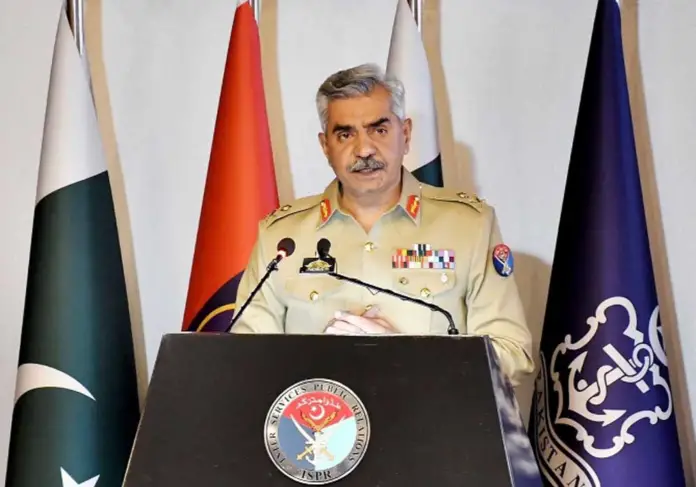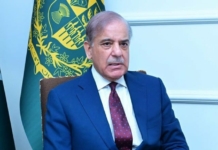The military on Tuesday defended the allocation of Rs1.523 trillion for fiscal year 2022-23, explaining that contrary to the perception, it has actually decreased.
Inter-Services Public Relations (ISPR) Director General (DG) Major General Babar Iftikhar said in an interview that keeping in view factors such as inflation and rupee depreciation, the defence budget allocation had decreased, and was now 2.2 per cent of the gross domestic product (GDP) from 2.8 per cent last year. In the budget presented by Finance Minister Miftah Ismail on Friday, defence services were allocated Rs1.523 trillion, which makes up 17.5 per cent of the total current expenditure and is 11.16 per cent higher than that of last year. In terms of expenditure, the defence budget is 16 per cent of the government’s planned total outlay – exactly the same as it was a year before.
The declared increase in the defence budget was in sharp contrast to the cuts in spending on development (11 per cent), health (31 per cent), education (1.5 per cent) and housing (77 per cent). The hike is almost on a par with the average inflation calculated for the year ending June 30. Major General Babar Iftikhar told anchor Kamran Shahid that there was an “annual debate” on the army’s allocation following the budget, adding that the money earmarked for defence services was based on the “threat perception, challenges, deployment and the resources available”.
“So [after] considering all these things, the army hasn’t had any [net] increase in the budget since 2020,” the ISPR DG claimed. “When you look at inflation and rupee depreciation, it (defence budget) was actually reduced. It was 2.8 per cent of the GDP last year and now we are at 2.2 per cent, so the budget is continuously going down in terms of GDP.”
He said that after factoring in this year’s inflation, the defence budget had actually taken a hit of Rs100bn. “Despite these challenges, we did not allow any shortcoming in our capabilities,” he added. Elaborating on the measures taken by the army to curb its spending, the ISPR DG said instructions had been passed to conserve fuel and reduce expenditure on utilities, while Friday would be observed as a “dry day” every week, where no official transport would be used except for emergencies.
Major General Iftikhar further said the army had returned to the government Rs6bn from Covid-19 allotments and Rs3.5bn from other allotments in last year’s budget.
When questioned about former prime minister Imran Khan’s longstanding claim of there being a US-backed conspiracy behind his ouster, the ISPR DG said he had “already clarified” the matter as he proceeded to reject the claim again. The ISPR DG was also asked about “propaganda and criticism” against the army after it “distanced” itself from political affairs. He acknowledged that the army and its leadership were being targeted through “baseless rumours and propaganda, which is very unfortunate and shouldn’t happen”.
He said that everyone was entitled to their opinion, but no one had the right to “reject facts and target an institution and its personalities on the basis of lies”.
Major General Iftikhar confirmed that former army chief General (r) Pervez Musharraf’s family was in contact with the military regarding his proposed return to Pakistan in light of his poor health. He said that Musharraf’s return to Pakistan from UAE was a decision for his family and doctors to make.
“The institution and its leadership have the stance that he should come back,” he said.
The DG ISPR also talked about Chief of Army Staff General Qamar Javed Bajwa’s recent visit to China, saying it was “very important”. He said the trip would have “far-reaching effects” that would soon be visible.








Comments are closed.